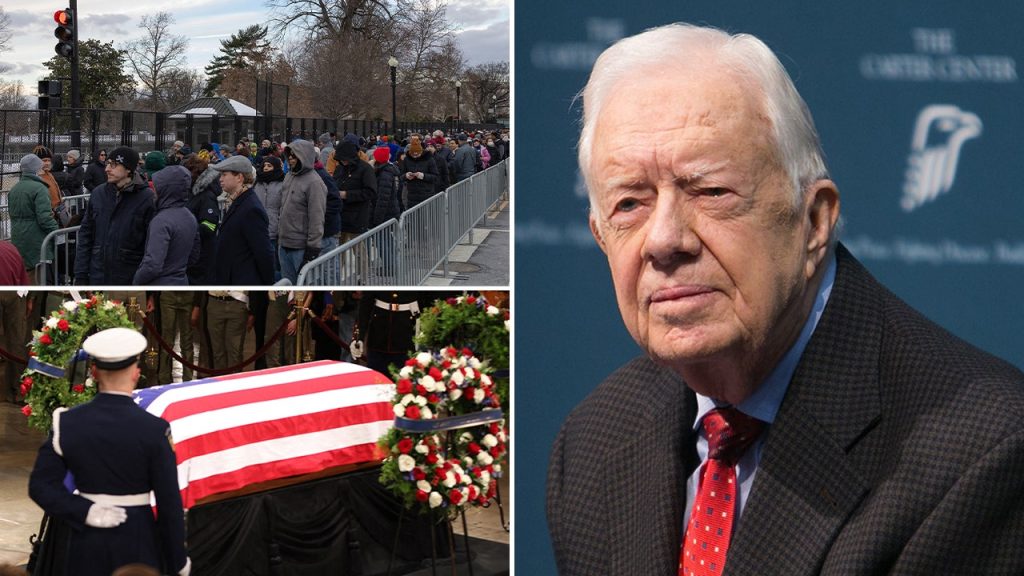The recent funeral service for former President Jimmy Carter at the Washington National Cathedral sparked a heated debate on social media regarding the musical selection. Carter, known for his deep Christian faith, reportedly considered John Lennon’s “Imagine” his favorite song. However, the song’s performance by country music stars Garth Brooks and Trisha Yearwood at the funeral drew criticism due to its lyrics, which explicitly reject the concepts of heaven and religion. Critics argued that the song’s message was fundamentally incompatible with a Christian funeral service and disrespectful to Carter’s own beliefs.
The controversy centered on the opening lines of “Imagine,” which encourage listeners to envision a world without heaven, hell, or religion. Conservative commentators and social media users expressed their disapproval, questioning the appropriateness of the song choice in a sacred setting. Some argued that the performance contradicted President Biden’s earlier remarks praising Carter’s strong Christian faith. Others simply found the juxtaposition of the song’s message and the funeral’s religious context jarring and disrespectful to Carter’s personal beliefs.
The debate extended beyond political lines, with individuals from various backgrounds weighing in. Some argued that Carter himself, known for his open-mindedness and tolerance, might have appreciated the song’s message of peace and unity, despite its rejection of traditional religious concepts. Others countered that the funeral was not the appropriate venue for such a statement, especially given the solemnity of the occasion and the deeply held beliefs of the deceased.
Religious figures also entered the fray, expressing their dismay at the song choice. Bishop Robert Barron of the Catholic Archdiocese of Winona-Rochester criticized the performance as an “insult” to Carter’s memory and a sign of the “spinelessness” of established religion. He viewed the song’s message of atheistic humanism as fundamentally at odds with the Christian faith and inappropriate for a service held in a Christian church.
Despite the criticism, some attempted to defend the song’s inclusion. They argued that the very act of imagining a world without heaven implicitly acknowledges its existence. Alternatively, some suggested that the song’s message of peace and unity, even if divorced from religious context, aligned with Carter’s own values and his work promoting human rights and understanding.
The controversy surrounding “Imagine” at Carter’s funeral highlights the complexities of reconciling personal preferences with cultural and religious expectations, particularly in a public setting. It also underscores the ongoing debate about the role of religion in public life and the tensions that can arise when secular and religious values intersect. While some viewed the song as a tribute to Carter’s open-mindedness and commitment to peace, others saw it as a jarring departure from the conventions of a Christian funeral service and a disregard for his deeply held religious beliefs. The debate serves as a reminder of the powerful emotions that music can evoke and the diverse interpretations that can arise from a single song.

